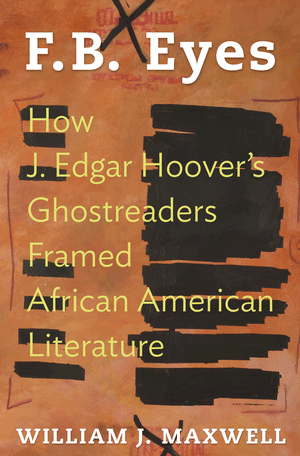
F.B. Eyes: How J. Edgar Hoover’s Ghostreaders Framed African American Literature
Few institutions seem more opposed than African American literature and J. Edgar Hoover’s white-bread Federal Bureau of Investigation. But behind the scenes the FBI’s hostility to black protest was energized by fear of and respect for black writing. Drawing on nearly 14,000 pages of newly released FBI files, F.B. Eyes exposes the Bureau’s intimate policing of five decades of African American poems, plays, essays, and novels. Starting in 1919, year one of Harlem’s renaissance and Hoover’s career at the Bureau, secretive FBI “ghostreaders” monitored the latest developments in African American letters. By the time of Hoover’s death in 1972, these ghostreaders knew enough to simulate a sinister black literature of their own. The official aim behind the Bureau’s close reading was to anticipate political unrest. Yet, as William J. Maxwell reveals, FBI surveillance came to influence the creation and public reception of African American literature in the heart of the twentieth century.
